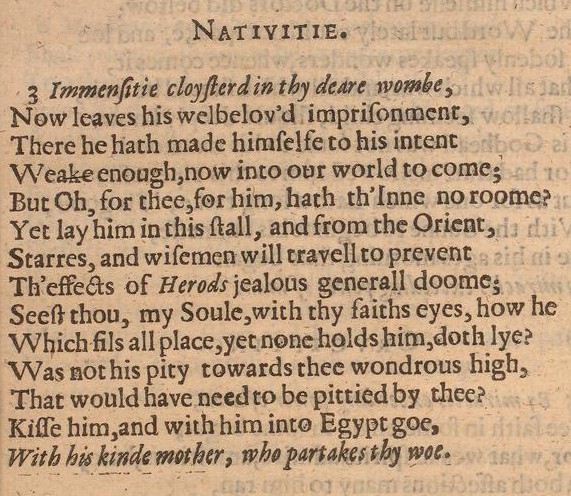This is from a work by Idiota (Raymundus Jordanus)
Now… an improved translation!
This is actually the beginning of a longer tract on Our Lady. The text that is traditionally called the “contemplations of the Virgin Mary” is much shorter. A complete translation of it exists in English, and I hope to “bring out” this text at some point.
THE BEGINNING OF THE CONTEMPLATIONS OF IDIOTA ON THE BLESSED VIRGIN
1. Draw me after you, Virgin Mary, draw me after you, so that I might run in the odor of your ointments. (Song of Songs, 1:3) Draw me after you, because the weight of my sins detains me. Draw me after you, because the pleasures of carnal concupiscence bind me. Draw me after you, because the malignant cunning of the perverse enemy ensnares me. Draw me after you, so that I might more quickly come to you; for just as no one comes to your blessed Son, unless the Father draws him; so in a certain way it could be said that no one comes to your glorious Son, unless you draw him by your most sacred prayers. Therefore, draw me who am petrified, so that you might render me a runner; draw me, a sinner, so that you may render me a penitent; draw me, who am ignorant, so that you might render me full of knowledge.
2. So that I might run in the odor of your ointments, that is, in the fragrance of your virtues, which, just as they smell of ointment and are fragrant, they soothe anguish and heal wounds; your most fragrant ointments are, for example, heavenly wisdom, spiritual grace and unfading glory; for by your words and example, you teach true wisdom, because you are the teacher of the wisdom of God; you obtain grace for sinners and you promise glory for those who honor you. Hence, obtain by your assiduous intercession, that I might praise you, glorify you, bless you, recount your virtues, announce your wonders, and preach your holy and exemplary life, elucidate what is written about you, so that I might have eternal life: for, it is written about you, those who explain me, will have eternal life. (Cf. Sir 24:22)
First Part – Contemplation I – On the Head of the Virgin Mary
1. Your head is like Carmel, most merciful Virgin Mary, because Carmel is a high and fruitful mountain: whence, your head, that is, your intellect, which resides within the head, was high on account of the eminence of [your] contemplation; since your intellect was always elevated toward God on account of your continual contemplation, and you were more clearly contemplating God, because you reached into the heavens while stills standing upon earth: and (as it is piously believed by many) and while still a pilgrim, your blessed soul more frequently comprehended and enjoyed things heavenly and eternal than all the other Saints. And although you displayed all the works of the active life to your blessed Son: nevertheless, interiorly, you never departed from divine contemplation, for you possess in this matter the perfection of the Angels. For the Angels, since they are sent unto us, as they minister exteriorly, nevertheless interiorly do not depart from their contemplation of God.
2. Your blessed Head you humbled before God; your Head is Carmel, that is, on account of the most generous fertility of singular graces, you excelled the dominion of your members; just as through the head, the entire body is ruled. From this follows the manifold fruit of good works; for from your virginal substance, the Supreme Pontifex [High Priest] assumed, as a victim, you flesh, which, upon the altar of the Cross for the salvation of the world, was elevated upon the Cross and with his hands offered the evening sacrifice; whose most sweet odor consoled the wrath of God the Father: and from you he drew, not the heat (fervor) of the wounds, but the matter for healing.
3. Truly, I am the most miserable sinner; and full of all misery, and worth of all punishment, by not contemplating what was said above, and by not responding to the graces to any extant I have not united to the head of my most kind Lord Jesus Christ, my own head, by humbling itself, through devout contrition, confession, and true and meritorious satisfaction; but my sinful head I have dared to raise through pride, by not knowing you nor your blessed Son, spurning the graces given to me, by committing so many sins, harming my neighbor or having the will to harm. Oh, most clement Virgin Mary, deign to have compassion upon me, a miser, incline your head toward your blessed Son and pray that my proud and ungrateful head might be worthy to become humble; so that I might know how to love Him and you, amend my sins, not harm but love my neighbor, persevere in good works, and having finished the course of this present life, I might rest with my head, the most glorious Jesus Christ, for all eternity. Amen.
Anybody want more translated from this?


